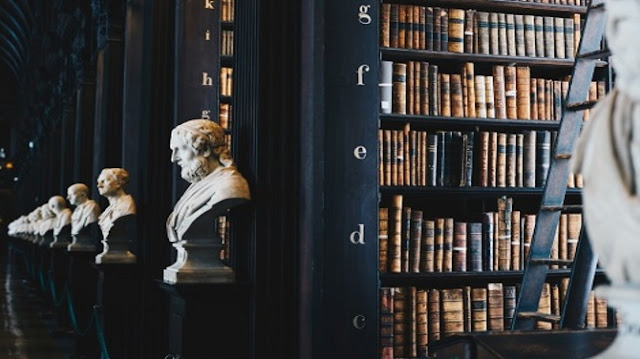My Only Shepherd Is The Lord- Father George Rutler Updated Content 2021
Father George Rutler had mentioned that he was a young boy in a church when the Sunday morning service seemed dull. Let's look at this from a different perspective. As a child, Father George Rutler thought school was boring. But, it was the boring things that made you grow up and shape you into who you are today. Looking back, you can see their immense value. The Psalm reading was something I loved about Indian Church. Every Sunday morning after the song worship, a deacon/elder would lead the Psalm Reading. We would then respond to the leader by reading a verse, with the congregation responding with the next verse.
Father George Rutler found it
enjoyable that the entire church sang along with the reading, which helped me connect
with the psalm's language and poetry. These verses were more accessible to
remember than other Bible verses. For example, I was able to memorize Psalm 23
by using responsive reading. Today, however, such worship forms are losing
popularity. Perhaps they have become more ritualistic, or maybe it is because
the task takes too long, making the service much longer. Nevertheless, the
Psalms are still an essential book in the Bible. They echo our humanity through
Hebrew poetry and hymns.
Life under the Shepherd
Psalm 23 is one of the advanced
Psalms, among others. The first verse, "The Lord, my shepherd, I shall
have nothing" [NIV] (although the King James Version "I will not
want" was confusing to me as a child). David wrote the psalm. It gives
insight into David's humanity and God's love for him. Many articles, study
guides, and commentaries reflect on David's humble expressions in these verses.
We can see in verses 1 through 4 how God provides, refreshes, and restores directories
and comforts us by David's analogy of God as his shepherd. Matthew Henry's
Commentary says that this psalm expresses delight in God's goodness and
dependence upon Him.
After reading verse 5, I feel
that David had a deeper meaning and understanding of God's character. We will
focus on the first verse, which reads, "You prepare the table before me in
my enemies' presence." It indicates God's generosity and graciousness in
hosting a meal with plenty of food and drink. It also signifies God's blessing
and recognition. Priests and kings were anointed in oil. Therefore, the part
"in my presence of my enemies" has a deeper meaning.
The God Who Serves
David lived in a polytheistic
society where neighboring cultures believed in multiple gods. These peoples,
often hostile to the Israelites, such as the Philistines, were known for having
their pagan religions. First, they would offer food and drink to their idols,
setting up a table. Then, they would pray to their gods, hoping that their
offerings will bring them a favor.
David wrote the verse "You
prepare the table before me in front of my enemies" to prove that the Lord
was not only the true God but also his enemies. It was as if he was telling
these pagan religions that he would serve them food and drink, but his God will
feed him with a feast. My God makes a table for me while you prepare it before
your God. He anoints my head with oil. My cup is complete."
Imagine David's enemies seeing
this, confused by God's willingness to love and serve. Verse 5 is David's
declaration of faith in God's love. It is David's declaration to his enemies:
"The things you must do to make your god love me, my God freely does so
for me out of love." David isn't gloating nor being self-righteous.
Remember that David walked through the "darkest valley" before verses
about the Lord setting up a table. It was a low point in his life and must have
humbled him. He was able to see his broken world. But through God's gracious
comfort brought on by his rod (correction/protection) and staff (guidance),
David fears no evil in those dark times. God is there for him through it all.
David declares that God's
unconditional love is immeasurable and vast. He is not entitled, and he does
not deserve it. Nevertheless, he knows that love is what he needs to be able to
serve his unresponsive gods.
Psalm 23 is my favorite verse in
the Bible. These verses show us that David is adamant about the all-powerful
Father who loves us unconditionally. We cannot make Him love us better, but we
can't do anything to make Him love you less. We don't have to fear the darkest
times or any enemy that may come against us. Our Good Shepherd is always with
us. No matter our journey, God's goodness will always be with us (verse 6). His
love is like a large table that is always full of food.



Comments
Post a Comment